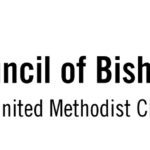By Linda Bloom, Kathy L. Gilbert and Vicki Brown
July 18, 2018 | UMNS
The first public details of proposed legislation setting out three proposals for resolving the denomination’s differences over homosexuality are included in the United Methodist Judicial Council’s October docket.
The special 2019 General Conference — set for Feb. 23-26 in St. Louis — will attempt to find a way forward for The United Methodist Church by considering the three different plans included in the report developed by the Commission on a Way Forward. The full report and all the legislation are part of the docket.
The Council of Bishops has asked the Judicial Council, the denomination’s top court, to rule on whether the proposed legislation for the One Church, Connectional Conference and Traditional plans passes the constitutional test. The Judicial Council meets Oct. 23-26 in Zurich.
Included in the 231-page request from the bishops is the full Way Forward Commission report, 17 petitions related to implementation of the One Church Plan, 14 petitions for implementation of the Connectional Conference Plan and 17 petitions for implementation of the Traditional Plan.
The bishops have requested an oral hearing on the plans during the meeting in Zurich.
The bishops, who appointed the 32-member Way Forward Commission, originally said the plans would be made public by July 8, but then delayed the release of the report because translation into the four official languages of General Conference was not complete. General Conference organizers then said they expect the translated report would be available by July 30.
The Rev. Thomas M. Berlin, Patricia Miller and the Rev. Thomas Lambrecht were named as the respondents to the petition because they were asked by the council to submit the proposed legislation on behalf of the commission. Berlin submitted for the One Church Plan, Miller for the Connectional Conferences Plan and Lambrecht for the Traditional Plan.
One Church Plan
“The One Church Plan gives churches the room they need to maximize the presence of a United Methodist witness in as many places in the world as possible,” says the opening statement on a report on the work of the Commission on a Way Forward.
The report said the plan honors the connectional nature of The United Methodist Church and that no annual conferences, bishops, congregations or pastors are “compelled to act contrary to their convictions.”
Key issues of the legislation include eliminating the Book of Discipline language, “The United Methodist Church does not condone the practice of homosexuality and considers this practice incompatible with Christian teaching.”
Also deleted is the requirement that ordained clergy not be “self-avowed practicing homosexuals.” Each annual conference board of ordained ministry and clergy session may determine standards for ordination or certification, including standards related to human sexuality.
Where laws in civil society define marriage as union between two adults, no United Methodist elder or deacon is required to celebrate or bless a same-sex union. But a clergy person cannot be prohibited from performing same-sex marriages, unions or blessings.
Clergy who cannot in good conscience continue to serve in a conference or church based on the standards for ordination regarding homosexuals may seek to transfer. All clergy with security of appointment shall continue under appointment by the bishop of the annual conference.
Local church members can decide what is best for their congregational and missional context related to same-sex marriage on church property. Local churches must vote — in a church conference open to all members — to allow their property to be used for a same-sex ceremony.
These changes apply only to the jurisdictional conferences in the U.S., according to the report from the Commission on a Way Forward.
“Central conferences, through the work of the Standing Committee on Central Conference Matters, will have the authority to retain the present language regarding chargeable offenses of clergy and questions of ordination related to homosexuality found in the Book of Discipline (2016) or adopt working in these paragraphs that best serves their missional contexts.”
The One Church Plan ends the threat of church trials over same-gender weddings. Local churches already have the authority to establish wedding policies, and pastors already discern whom they will or will not marry.
The Way Forward report also asks the General Council of Finance and Administration to find means consistent with the Book of Discipline to ensure each jurisdictional conference or area supports the costs of its own episcopal leader and office.
Under the heading “Theological and Biblical Foundations,” the report said the One Church Plan offers more space for both traditionalists and progressives.
“United Methodists in central conferences want space to shape conversations about sexuality according to their national context and without replicating whatever practices shape churches in the United States.
“Other United Methodists want to give space as generously as possible without compromising core identity and mission.”
The One Church Plan honors United Methodists who believe that the denomination’s impasse over marriage and ordination of homosexual individuals “does not rise to the level of a church dividing.”
The report spells out the effects of the One Church Plan on each segment of The United Methodist Church.
“This plan minimizes disruption in the local church (in most cases) and gives freedom to churches to adapt in order to minister to the LGBTQ community in their context. It allows for independence as well as interdependence and creates a contextual church for the next generation.”
The plan allows clergy to remain or leave the church because of a change in language of the Book of Discipline. Their vested pension will be protected at the time of their departure. It also allows clergy to transfer to another annual conference.
According to the commission, no amendments will need to be made to the constitution. If passed at the 2019 General Conference, the One Church Plan could take effect on Jan. 1, 2020. However it is recommended that the church take until Dec. 31, 2020, to fully implement the plan to give everyone time to acclimate.
All three plans contain provisions for handling pension funds, but the One Church and Connectional plans contain no provisions for churches that want to change their relationship with The United Methodist Church. According to the Way Forward report, the Council of Bishops indicated that there were already provisions in place for a church that might want to leave.
“The language of ‘exit’ should be used carefully so as not to encourage people to look for an ‘exit’ but rather to help The United Methodist Church focus on unity,” the Council of Bishops said in the Way Forward report.
The Traditional Plan does include provisions for self-governing churches and annual conferences as well as dealing with church property.
Traditional Plan
The Traditional Plan would affirm current language in the Book of Discipline, which bans “self-avowed and practicing” gay clergy and the blessing of same-sex unions. It would also enforce those bans swiftly and strictly.
The plan’s legislative petitions also provide a way for churches and annual conferences that disagree with strict enforcement to set up self-governing or “autonomous, affiliated or concordant” churches or conferences.
According to the Way Forward report, a “Traditional Model” was prepared by a few members of the Council of Bishops and was not the work of commission.
Support for this plan on both the commission and council was “modest enough” that earlier work on the model was discontinued, then resumed in May at the request of the Council of Bishops that a traditional plan be developed, the report said.
Other provisions include:
- Broadening the definition of “self-avowed practicing homosexual” to include anyone living in a same-sex marriage, domestic partnership or civil union, or who publicly states that he or she is a homosexual.
- Setting minimum penalties and quicker expulsion after conviction of violations.
- Requiring bishops and annual conferences to certify that they would uphold, enforce and maintain Disciplinary standards on LGBTQ marriage and ordination. Bishops who could not do so would not be eligible for compensation for expenses after 2021 and would be urged to join the self-governing churches.
- Preventing bishops from consecrating, ordaining or commissioning a “self-avowed homosexual” even if that person had been elected or approved by the relevant jurisdictional conference or clergy session. That petition does not include the term “practicing” as part of the ban.
- Reviewing the status of bishops who could not certify they would uphold the Discipline through a newly created Council of Bishops’ Council Relations Committee for possible action.
- Handling complaints against bishops under new provisions set out in a constitutional amendment that was ratified in May and aimed at requiring the Council of Bishops to hold its members accountable.
- Setting a strict timeline for new provisions for handling complaints and making dismissal of complaints more difficult.
- Allowing local churches that disagree with a conference decision not to enforce the Discipline to remain with The United Methodist Church.
- Allowing local churches in a conference that plans to enforce the bans to join the “autonomous, affiliated, or concordant” church if they disagree with their conference. Groups of 50 or more churches could form new denominations.
- Encouraging clergy who could not maintain the ban on LGBTQ marriage and ordination to leave the denomination and join the affiliated churches.
- Requiring any just resolution of a complaint to contain a commitment not to repeat the offense.
- Requiring every annual conference to certify that they would maintain the bans and conferences that did not “would be encouraged” to form self-governing bodies.
- Continuing the current general agencies that could negotiate their services with churches and conferences that leave the denomination.
- Requiring the conference Board of Ordained Ministry to conduct an examination to ascertain whether a candidate was a practicing homosexual, including looking at information on social media.
The Traditional Plan recognizes that “because of the current deep conflict over The United Methodist Church’s position on marriage and sexuality,” a church or conference may want to form a self-governing church,” the Way Forward report said. The plan sets out a timeline for conferences to vote on that issue and detailed procedures for how funds will be handled, including pensions.
The implementation timeline would have the Traditional Plan in place by Jan. 1, 2021.
Connectional Conference Plan
The Connectional Conference plan would simplify the general church structure and provide “both space and connection between those parts of the church currently in deep conflict,” the Way Forward Commission report says.
The plan would replace the five U.S. jurisdictions with create three connectional conferences that are “values-based” rather than geographic in nature.
The denomination’s current central conferences, which are outside the U.S., could join one of the three U.S. conferences to form a global conference or create their own connectional conference. However, the individual annual conferences that disagree with the decision of their central conference have the option of voting to join a different connectional conference.
Each connectional conference would create its own Book of Discipline that includes items “commonly agreed upon by United Methodists,” with the authority to adapt other items not included in a General Book of Discipline.
Each connectional conference’s College of Bishops would provide episcopal oversight and accountability and would handle elections, assignments and funding. U.S. conferences would pay for their own bishops, with all U.S. conferences continuing to support bishops outside the U.S. The larger Council of Bishops would focus on ecumenical relations and shared learning.
Each connectional conference would have its own administration and financing; its own policies regarding LGBTQ weddings and ordination and its own standards for clergy.
Justice ministries related to racism and sexism would be organized at the connectional conference level and held accountable by the general church. Cross-connectional conference cooperation and partnerships would remain the same and all connectional conferences would continue to support mission work and ministry outside the U.S.
A shortened General Conference would retain authority over the church’s shared doctrine and the services of continuing general agencies. As a venue, General Conference would serve as a gathering place for worship, inspiration and the sharing of best practices.
The commission’s report specifies Wespath, the Publishing House, the General Council on Finance and Administration, the Commission on Archives and History and parts of the Board of Global Ministries, including the United Methodist Committee on Relief, as “continuing general agencies,” with the future structure of other agencies to be determined “by which connectional conferences desire to participate in them.”
The Judicial Council, whose membership would include two persons elected by each connectional conference, would have authority over all judicial matters based on the respective connectional conference Books of Discipline. But conferences also could have their own separate courts.
Included in the procedure and timeline for the Connectional Conference plan:
• The first level of connectional conference affiliation would be at the jurisdictional level. Annual conferences that disagree can choose a different conference, and no local church is required to take a vote unless the choices is different than its annual conference.
• Jurisdictional property would belong to the affiliated connectional conference. Church-owned or church-related entities could make their own affiliation decisions.
• Unless determined otherwise, central conferences would be authorized to elect bishops in 2020, as scheduled. Regions not electing bishops in 2020 would have the mandatory retirement age of bishops waived until 2022.
• A Standing Committee on Connectional Conferences would be established by the 2020 General Conference to help the Council of Bishops facilitate cross-conference connections and cooperative ministry.
• General Conference 2024 would be postponed to 2025 to allow time for the transition and to “disconnect succeeding General Conferences from the U.S. election cycle.”
Read the full docket item submitted by the Council of Bishops.
Bloom is the assistant news editor for United Methodist News Service and is based in New York. Gilbert, multimedia reporter, and Brown, UMNS news editor, are based in Nashville.
Contact them at 615-742-5470 or newsdesk@UMNews.org. To read more United Methodist news, subscribe to the free Daily or Weekly Digests




